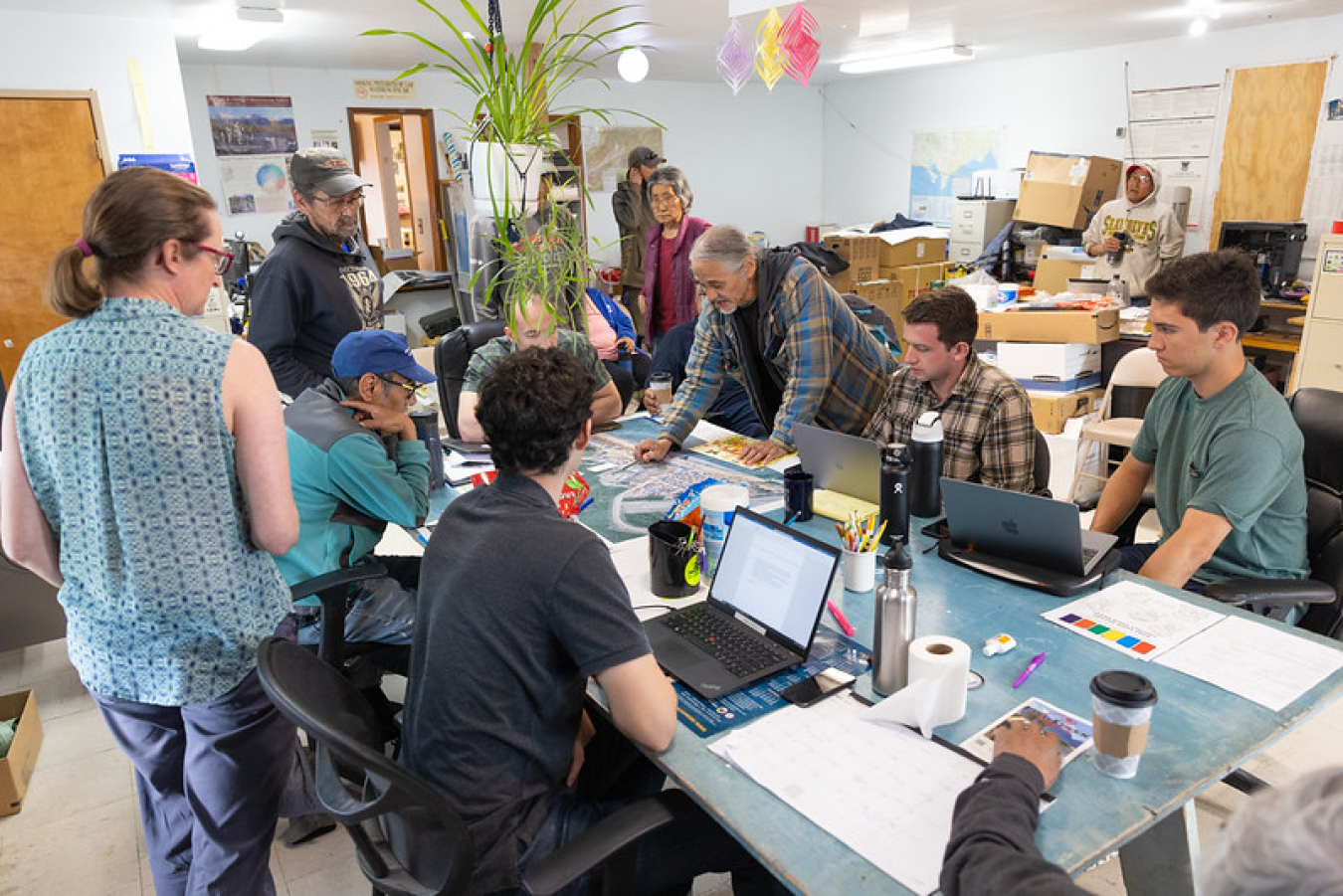
The U.S. Department of Energy’s (DOE) Geothermal Technologies Office (GTO) engages with Tribes, Tribal entities, and Native and Indigenous communities to better understand the needs and concerns of Native populations regarding geothermal energy development, and to further opportunities for collaboration. In addition, GTO-funded initiatives are working with Tribal, Indigenous, and Native entities to identify opportunities that support energy sovereignty that includes geothermal energy solutions.
GTO-funded Work with Tribal and Native Entities
Community Geothermal Heating and Cooling Design and Deployment: GTO is helping community coalitions to design community-scale geothermal heating and cooling systems nationwide. Tribal entities supported under this initiative include nonprofit tribal consortium Kawerak, Inc., which helps expand opportunities for the Inupiaq, St. Lawrence Island Yupik, and Yup'ik people of Alaska, and the Citizen Potawatomi Nation in Oklahoma.
Geothermal Collegiate Competition (GCC): In GTO’s annual collegiate student competition, teams are challenged to design geothermal systems or assess policies and economics for such systems in a community of their choice—often including Tribal and Native communities. Winning teams in the Fall 2023 GCC tracks worked with the Native Village of Elim in Alaska and the Osage Nation in Oklahoma to explore opportunities for geothermal. In 2022, the winning GCC teams also worked with Tribes, designing geothermal systems for the Mandan, Hidatsa, and Arikara Nation in North Dakota and within the Absentee Shawnee Tribe and Potawatomi Nation jurisdiction in Oklahoma.
Geothermal Interagency Collaboration Permitting Task Force: GTO supported the National Renewable Energy Laboratory (NREL) to convene federal and state regulators, industry, non-governmental organizations, and Tribes to discuss challenges and opportunities related to geothermal regulatory approvals and permitting. This work included Tribal listening sessions coordinated in consultation with the Bureau of Indian Affairs and the DOE Office of Indian Energy where Tribal participants shared their perspectives on geothermal energy, including concerns and potential pathways to increase deployment.
Makushin Geothermal Project/Qawalangin Tribe in Alaska: Using congressionally directed spending secured by Alaska Senator Lisa Murkowski, GTO is working with the Qawalangin Tribe of Unalaska, Alaska, at the Makushin Geothermal Project. In cooperation with community partners and geothermal power partners, the Qawalangin Tribe will plan, develop, and implement a comprehensive Workforce Development Plan to steer future hiring, training, and retention for displaced and disadvantaged communities, including tribal members. The Tribe will also plan, develop, and implement a Community Education Outreach Program in Unalaska to provide community information and promote geothermal STEM awareness for youth.
State-Level Community Engagement: With GTO support, NREL identified and engaged with Alaskan regions with potential for geothermal development, including the Tanana Chiefs Conference, which is the traditional Tribal consortium of the 42 villages of Interior Alaska. Through this work, GTO and NREL developed meaningful relationships with Alaskan communities, gained a better understanding of the needs of diverse and remote regions in the state, and developed educational tools to help support those communities. GTO and NREL are conducting similar efforts in Hawai’i, including collaboration with Native Hawaiians, and assessing additional states for community engagement.
Other Initiatives: GTO has and will continue to support additional work with Tribal, Indigenous, and Native communities across its research portfolio. Other projects featuring such engagement include GTO’s Play Fairway Analysis projects and earlier research to evaluate the geothermal resource potential within the Pyramid Lake Paiute Reservation in Nevada.

